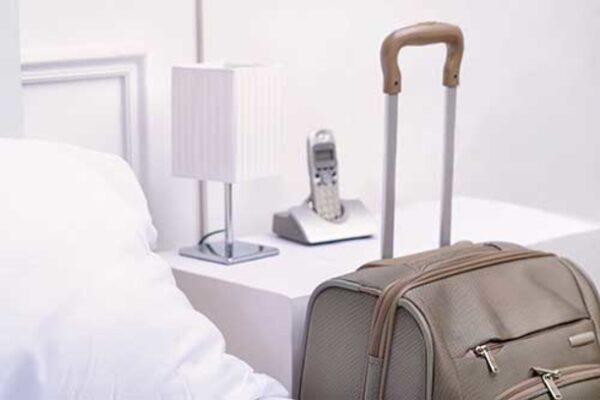Our last article was the final article in the series giving useful phrases you can use when travelling. But what if you are staying away from home?
These next articles will help you to talk about places to live or to stay when you are away from home. You can use them if you are trying to find a hotel, if you are looking for somewhere to live, or if you want to talk about the place where you live.
Let’s start with asking for things.
To say what you want, use I’d like … .
I’d like a double room.
I’d like to stay three nights.
I’d like a flat near the university.
I’d like a room with a private bathroom.
To talk about the kind of place you want to stay or live, use I’m looking for … .
I’m looking for a room in a shared house.
I’m looking for cheap accommodation in the area.
I’m looking for a place to rent.
We’re looking for a house with four bedrooms.
To explain to someone what you want, use I want … .
I want a house with a large garden.
I want to rent a house for six months.
I want a room with a view of the sea.
If you are in a hotel and you need something, use Could I have … ? .
Could I have the key to my room, please?
Could I have a receipt, please?
Could I have two more towels?
To make sure that a hotel has everything you need, use Do you have … ? .
Do you have internet access?
Do you have a gym?
Do you have any rooms available?
To ask someone to do something for you, use Could you … ? .
Could you show me the room, please?
Could you get someone to repair the window?
Could you call a taxi for me, please?
Good to know!
Accommodation is one of the words most often spelt wrong in English. Remember that it has cc and mm.
Useful words
a double room a room for two people
a flat a set of rooms for living in, usually on one floor and part of a larger building
private only for one particular person or group and not for everyone
share to have or use something with another person
accommodation buildings or rooms where people live or stay
rent to pay the owner of something in order to be able to use it yourself
a garden the part of land by your house where you grow plants
the view everything that you can see from a place
a receipt a piece of paper that shows that you have paid for something
a towel a piece of thick soft cloth that you use to dry yourself
access when you are able to use equipment
a gym a large room with equipment for doing physical exercises
available that you can find or get
repair to fix something that has been damaged or is not working properly
Our next article will give you some phrases you can use when talking about yourself when you are looking for somewhere to live or stay.




collins_dictionary_official
The home of living language. #wotd #wordlovers #collinsdictionary
Read our word of the week definitions and blog posts: